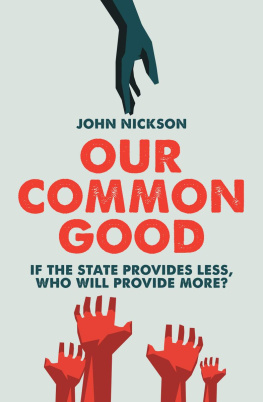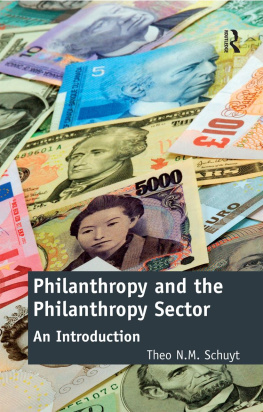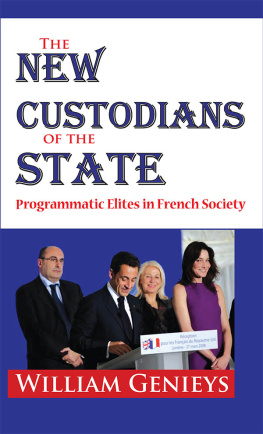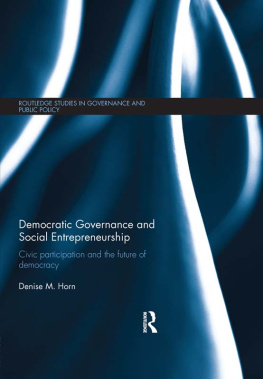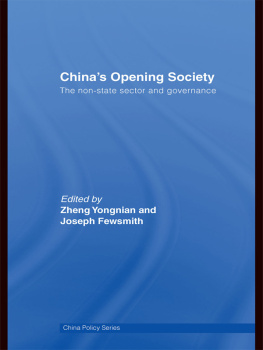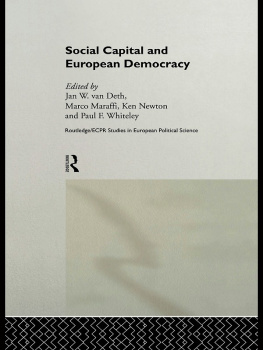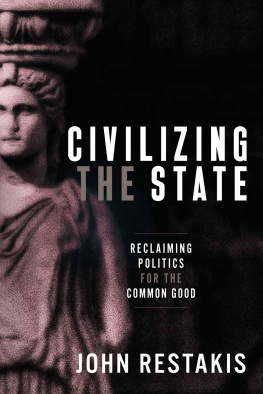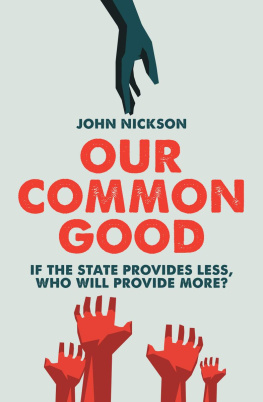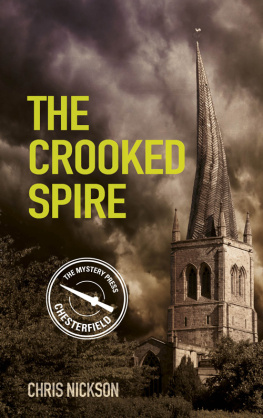John Burgh was an immigrant. He arrived in London shortly before the Second World War, an AustrianJewish refugee unable to speak English. After three decades as a senior civil servant, he became Director General of the British Council, which has taught English to millions around the world. I was head of the press office at the British Council in the 1980s when John did his best to temper my rhetoric but not always successfully. John had a gift for friendship. At his funeral, Shirley Williams, former Secretary of State, talked of Johns unquestioned integrity and described him as irreplaceable. I miss his curiosity, his encouragement, his wit and his warmth. John died aged eighty-seven, so we had to let him go.
John Cobb was a consultant psychiatrist. Following a heart attack in my twenties, I became depressed and was referred to John. I believed, wrongly, that this was the lowest point of my life. On the contrary; the experience was illuminating. John led me out of darkness into light and a new world of understanding. We became friends and discussed the possibility of collaborating on a book. Nine days later, John suddenly stopped speaking. His death was unexpected and too soon.
Becky worked for me at Tate where I was responsible for fundraising. I realised she should be my successor. Indeed, she took over running the department long before I retired. One of the main requirements of the job is to persuade those more senior than you to do what they know they should but would rather not. Becky was brilliant. She had the persistence of a terrier, well disguised by her eloquence and wit. Tate had a colossal fundraising target of more than 300 million and although we had made good progress by the time I retired in 2011, Becky led her team of trustees and staff to complete the restoration of Tate Britain and the building of the Switch House at Tate Modern. Becky was struck down by a particularly aggressive cancer and died age forty-five, two months before the opening of the Tate Moderns Switch House, and far, far too soon.
RIP. Carpe diem.
I am particularly grateful to the following for their encouragement and advice as well as their practical and moral support:
Rory Brooks, John Botts, Victoria Barnsley, Michael de Giorgio, Sir Simon Robertson, Lord (Dennis) Stevenson and John Studzinski.
Susan Sturrock gave me invaluable editorial advice and support and I could not have written Our Common Good without her.
I am indebted to Olivia Beattie, Laurie De Decker and their colleagues at Biteback Publishing for all their support, guidance and patience.
In addition to all those who appear in the book, I am grateful to the following who contributed in so many ways:
Andrea Bagg, Peter Bettley, Ian Blatchford, Dr Beth Breeze, Will Campbell-Gibson, Sam Carter, David Clark, Scott Colvin, Jonathan Cooper, Mary Cosgrave, Professor Brian Cox, Chris Cox, Rebecca Eastmond, Sheryl Forfaria, David Gordon, John Groves, Annie Harris, Professor Charles Harvey, Dr Philip Hopley, Talia Hull, Sir Peter Jonas, Paul Knox, Alice Memminger, Gina Miller, Robert Napier, Gbor Pl, David Parkinson, John Pepin, Professor Cathy Pharoah, Lois Pimentel, Christopher and Phillida Purves, Sir Simon Robey, Kath Russell, Zoe Sheppard, Anne de Silva, Katherine Smith, Paul Smith, Alexander Stevenson, Sally Tennant, Caroline Underwood, Joelle Warren, Rob Williamson and Raz Yunnus.
CONTENTS
W e live in paradise. So said my doctor when I gave her a copy of my first book, Giving Is Good for You. Her practice is in Londons poorest ward. One might ask: paradise for whom?
We live in a paradox. The world has never been richer and billions have been lifted out of extreme poverty. A new middle class has been created in the developing world, transforming the global economy. Inequality between nations has decreased but inequality within some nations has increased greatly. The world is better connected than ever but many feel disconnected from society. Britain has emerged from the recent recession with a notable ability to create jobs, yet many of our fellow citizens are in receipt of benefits despite being in work.
Many in other countries regard Britain as paradise and want to live here. According to the United Nations Refugee Agency, we live in an age of unprecedented mass displacement. The UN estimates that in 2015, one in every 122 people in the world was a refugee, internally displaced or seeking political asylum. The total number is estimated to be a record 65.3 million people, equivalent to the population of the UK and 60 per cent more than ten years ago.
More than a million refugees and migrants arrived in Europe in 2015, fleeing the destruction of their societies, challenging our notion of what society means, our sense of responsibility towards others, and our humanity.
There is evidence of rising xenophobia, racism, discontent, intolerance and anger in the so-called developed world, expressed in the rise of populism and parties of the extreme left and right. The politics of fear and blame are symptomatic of failure.
The disappointed and disaffected do not wish to consider the rights and needs of other people who come to be seen as less than human, to be excluded, expelled or worse. This is a dangerous road and we know where it leads.
Britain is divided between north and south, between Scotland and England, between metropolitan and non-metropolitan, between London and everywhere else, between pro- and anti-Brexit and between the 1 per cent and the 99 per cent.
As social bonds weaken, the role of the state is changing. The state is redefining its role and providing less. This is already increasing demand upon the voluntary sector, which is much smaller than the public and private sectors.
If the state provides less, who will provide more?
Being conscious of the debt of gratitude that my generation of baby boomers owes to previous generations who fought two world wars to defend our liberty, I am concerned about what we will bequeath to the young. Will they inherit a mountain of debt to add to the cost of their higher education in addition to the escalating cost of finding somewhere to live and of looking after my generation in old age? This will have profound implications for the future of our society because they will also inherit an increasingly unequal world where, according to Credit Suisse, 1 per cent of the worlds population already owns almost half of global wealth. Will democracy become plutocracy?
My aim is to cast light upon a subject that is of fundamental importance to us all. Civil society, the voluntary sector and the philanthropy that funds it are not part of public discourse or a political priority. And yet, contemporary Britain is defined by the generosity of our predecessors. Our hospitals and hospices, social housing, medical and scientific research, museums, galleries, theatres, concert halls, public parks, many of our schools, universities and conservatoires were made possible and are sustained by philanthropy as well as the state. Much of the social progress achieved in the past 250 years, such as the abolition of slavery, votes for women, the decriminalisation of homosexuality and the preservation of our rural and cultural heritage would not have happened without campaigning charities funded by personal donations. Given a state that will provide less, we shall need more people to be more generous in future.

